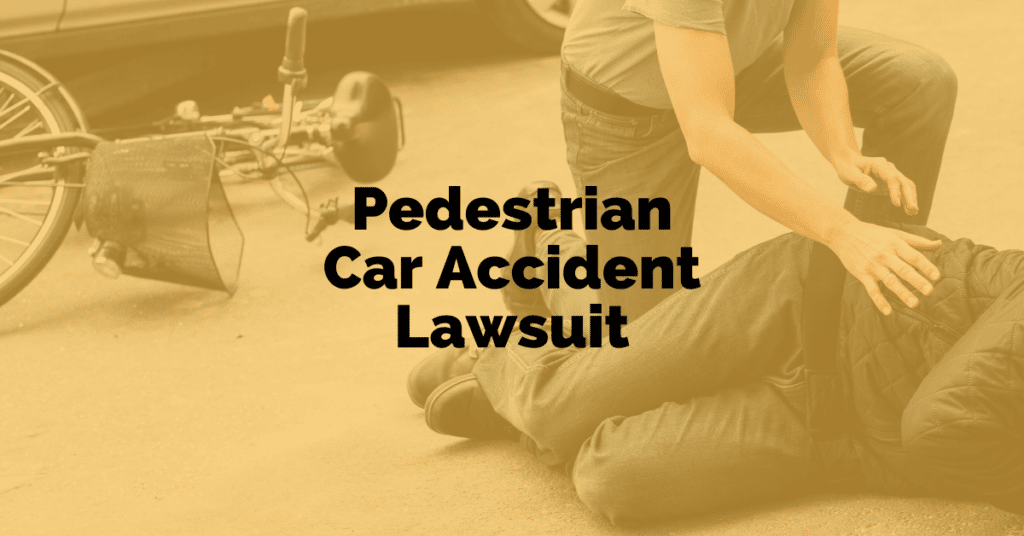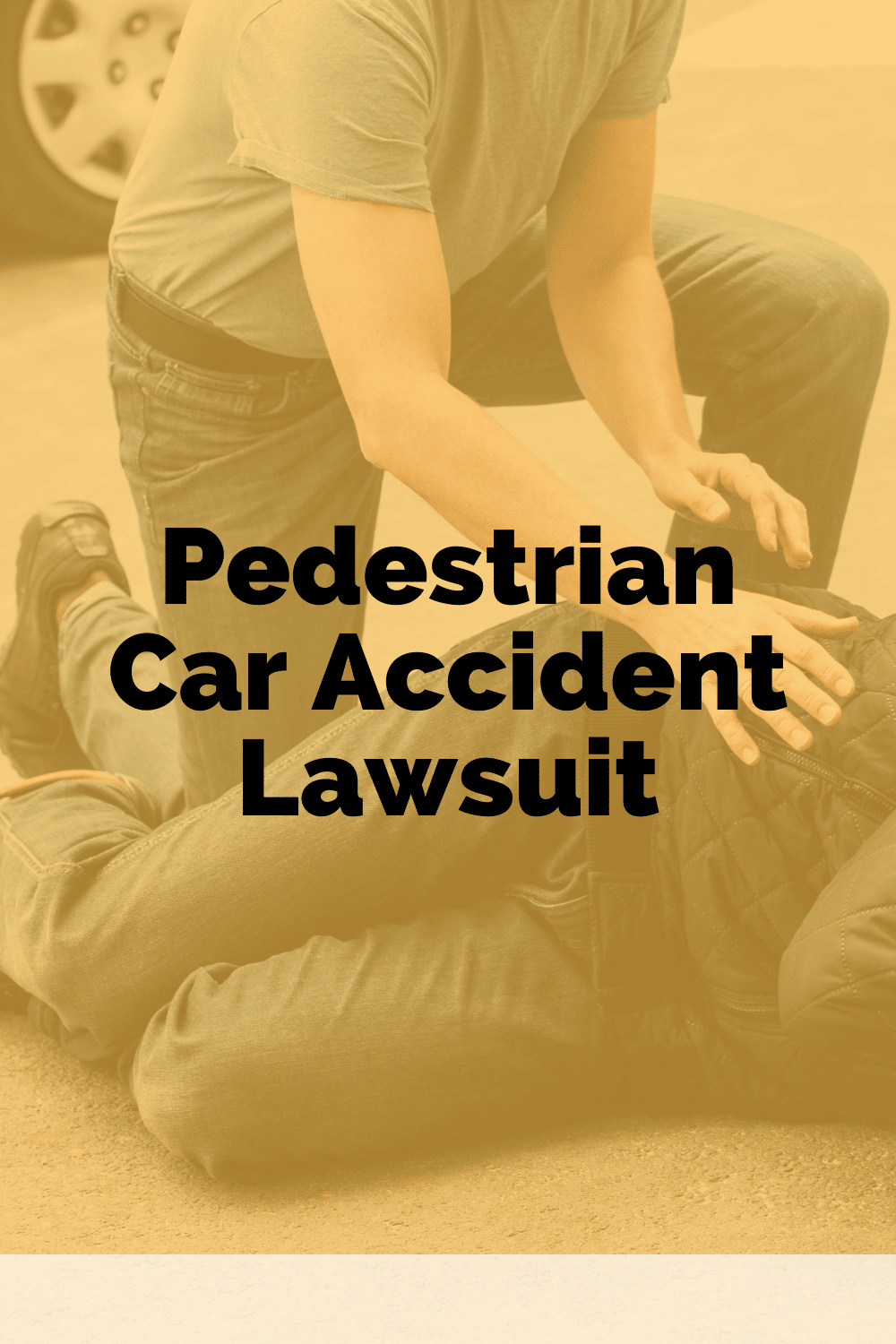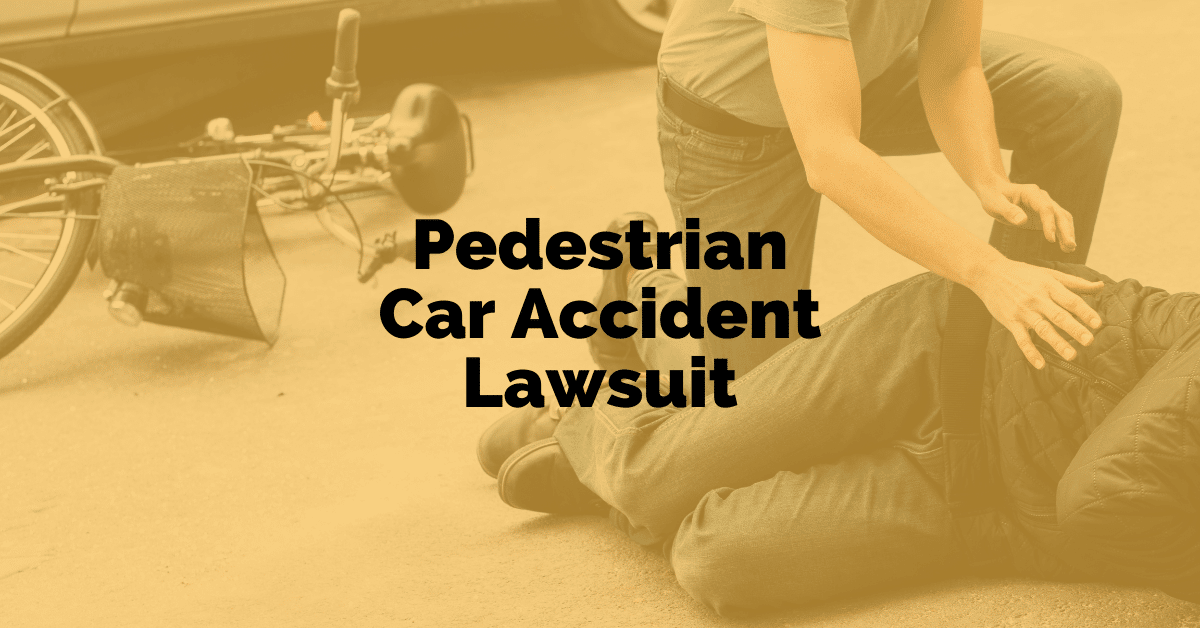Pedestrian Accident Lawsuit: What You Need To Know

If you were a pedestrian injured by an automobile in Michigan, you may be able to file a pedestrian car accident lawsuit. This would allow you to recover pain and suffering compensation, excess medical benefits and lost wages from the at-fault driver, as well as unpaid and overdue No-Fault benefits from your insurer.
Michigan pedestrian car accident lawsuit for pain and suffering compensation
In Michigan, you may be able to file a pedestrian car accident lawsuit against the at-fault driver for pain and suffering compensation, excess medical expenses and excess lost wages.
Compensation for pain and suffering damages will allow you to recover for your: (1) physical pain and suffering; (2) mental anguish; (3) fright and shock; (4) denial of social pleasure and enjoyments; (5) embarrassment, humiliation or mortification; and (6) shame, mental pain and anxiety.
To recover pain and suffering compensation, you will need to prove that the at-fault driver was negligent in causing the crash that resulted in your injuries. To recover pain and suffering compensation, you will also need to show you suffered a “serious impairment of body function.”
The “serious impairment of body function” showing is not required for excess medical expenses and lost wages and other economic damages.
Compensation for excess medical expenses covers the portion of your medical bills that exceeds the No-Fault PIP medical benefits coverage level that was selected in the auto insurance policy through which you are claiming No-Fault benefits.
Similarly, compensation for excess lost wages cover the portion of your lost income that exceeds the monthly maximum and/or the three-year limit that are set by Michigan’s No-Fault auto insurance law.
In Michigan, you have three (3) years after the date of your crash to file your pedestrian car accident lawsuit for pain and suffering compensation and excess medical expenses and lost wages. (MCL 600.5805(2))
Compensation from a Michigan pedestrian car accident lawsuit
Compensation from your case would likely cover your pain and suffering, excess medical expenses, excess lost wages and other economic damages. The amount of compensation that you could settle for will depend on the limits of the at-fault driver’s liability coverage.
Under Michigan law, all drivers must carry a minimum of $250,000/$500,000 in liability insurance coverage also known as third party car insurance. However, the law also gives them the option “to purchase lower limits” of $50,000 and $100,000. (MCL 500.3101(1); 500.3131(2); 500.3009(1)(a) and (b), (5))
If the at-fault driver who injured you was driving for Uber or Lyft or was operating a truck or commercial vehicle or was an employee of a business and acting within the scope of his or her employment at the time that he or she injured a pedestrian, then the liability insurance coverage limits that apply to your Michigan pedestrian car accident lawsuit may be higher.
The compensation recovered can also be affected by the amount of umbrella insurance coverage the at-fault driver has as well as his or her personal assets that could be used to contribute to the compensation that is owed to an injured pedestrian.
No-Fault benefits
In Michigan, you may be able to file a pedestrian car accident lawsuit to recover No-Fault benefits if the auto insurance company that is supposed to be paying your benefits has denied your claim and refuses to pay.
Here are the key details you need to know about filing a suit for No-Fault benefits:
• No-Fault PIP insurance benefits pay for an injured victim’s medical expenses, lost wages, medical mileage (transportation expenses for traveling to and from doctor and medical appointments), household replacement services and attendant care services.
• To trigger an auto insurance company’s obligation to pay No-Fault benefits, you must first file an application for No-Fault benefits – which is also called a “written notice of injury” – within one (1) year after the crash. (MCL 500.3145(1) and (4)) This is very important because if you do not file your application within ONE YEAR of the crash, you will lose your right to claim and recover benefits.
• You must file your Michigan pedestrian car accident lawsuit for unpaid, overdue No-Fault insurance benefits within one (1) year from the date that the medical bill, wage loss, medical mileage, replacement service or attendant service was incurred. (MCL 500.3145(2)) If such a claim is not filed within the one-year time period, then the bill will be time-barred and you will lose all rights to payment and/or reimbursement for the overdue benefits.
Filing for No-Fault benefits
You must file your case for unpaid, overdue No-Fault benefits against the auto insurance company that is responsible for paying your PIP No-Fault benefits but is refusing to do so.
The responsible auto insurance company will be one of the following: (1) your own auto insurance company; (2) the insurer for your spouse or a relative who lives with you; or (3) the auto insurance company assigned by the Michigan Assigned Claims Plan (when No-Fault coverage is not available through any other source). (MCL 500.3114 and 500.3115)
Injured and need help? Call the attorneys at Michigan Auto Law
If you have been injured in a crash in Michigan and would like to speak with an experienced attorney about filing a pedestrian car accident lawsuit, call toll free anytime 24/7 at (800) 968-1001 for a free consultation with one of our attorneys. You can also get help from an experienced accident attorney by visiting our contact page or you can use the chat feature on our website.







